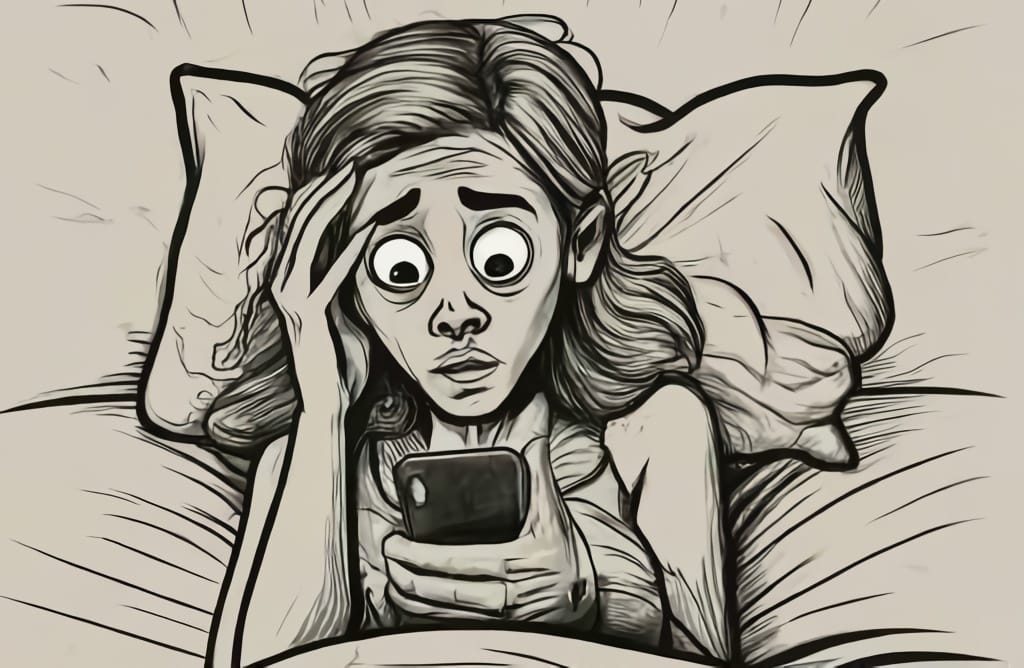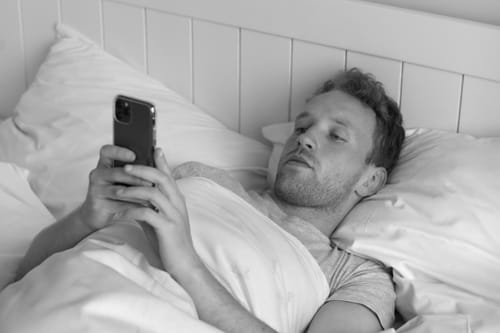Hold onto your hats, folks, because a University of Otago study has just thrown a curveball at our preconceived notions about screen time and sleep. It seems like the real culprit behind those restless nights isn't when you use your screens, but where.
Forget all those sleep guidelines that tell you to ditch your devices an hour or two before bed. Researchers found that screen time leading up to bedtime barely affected the quality of sleep for young people. The real problem? It's when those screens sneak into bed with them.
Lead author Dr. Bradley Brosnan, clearly a man who understands the allure of a late-night Netflix binge, points out that screens have become a staple of teenagers' bedtime routines. And guess what?
The study, published in the esteemed JAMA Pediatrics, found that a whopping 99% of the 11 to 14-year-old participants indulged in some screen time before hitting the hay. More than half of them even took their devices to bed, and a third continued their digital escapades even after trying to sleep. Talk about dedication.
The study used a combination of body cameras, infrared cameras, and fancy sleep-tracking watches to monitor these teenagers' habits. And the results? Well, let's just say they were surprising. Pre-bedtime screen time had little impact on their sleep, but once those devices made their way into bed, it was game over.
Each extra 10 minutes of interactive screen time in bed (think gaming or multitasking) was like stealing almost the same amount of time from their precious sleep. Ouch.
Dr. Brosnan, ever the pragmatist, suggests that the most "simple" solution (in theory, at least) would be to banish devices from the bedroom altogether. But let's be real, is that going to happen?

So, the takeaway? It's time to update those sleep guidelines for the modern world, where screens are an inevitable part of life. Instead of focusing on when teenagers use their screens, maybe we should start focusing on where.
Because honestly, who hasn't tried to sneak in one more episode before finally succumbing to sleep? By the way, doom-scrolling isn't totally innocent either.
A recent study published in the Journal of Computers in Human Behavior Reports investigated the effects of doomscrolling on university students. Researchers surveyed 800 students from the US and Iran and found a correlation between excessive consumption of negative news and feelings of existential anxiety. Here's some key observations from another research paper:
|| Doomscrolling had a significant positive relationship with neuroticism.
|| Findings indicated that doomscrolling had positive relationships with FOMO, social media addiction and social media daily hour.
|| Individuals who are more engaged with doomscrolling are more likely to experience psychological distress which in turn leads to lower mental well-being, life satisfaction and harmony in life
In a nutshell, keep your phone out of your bed, and know that doomscrolling is fucking up with your well-being in ways more than one.

